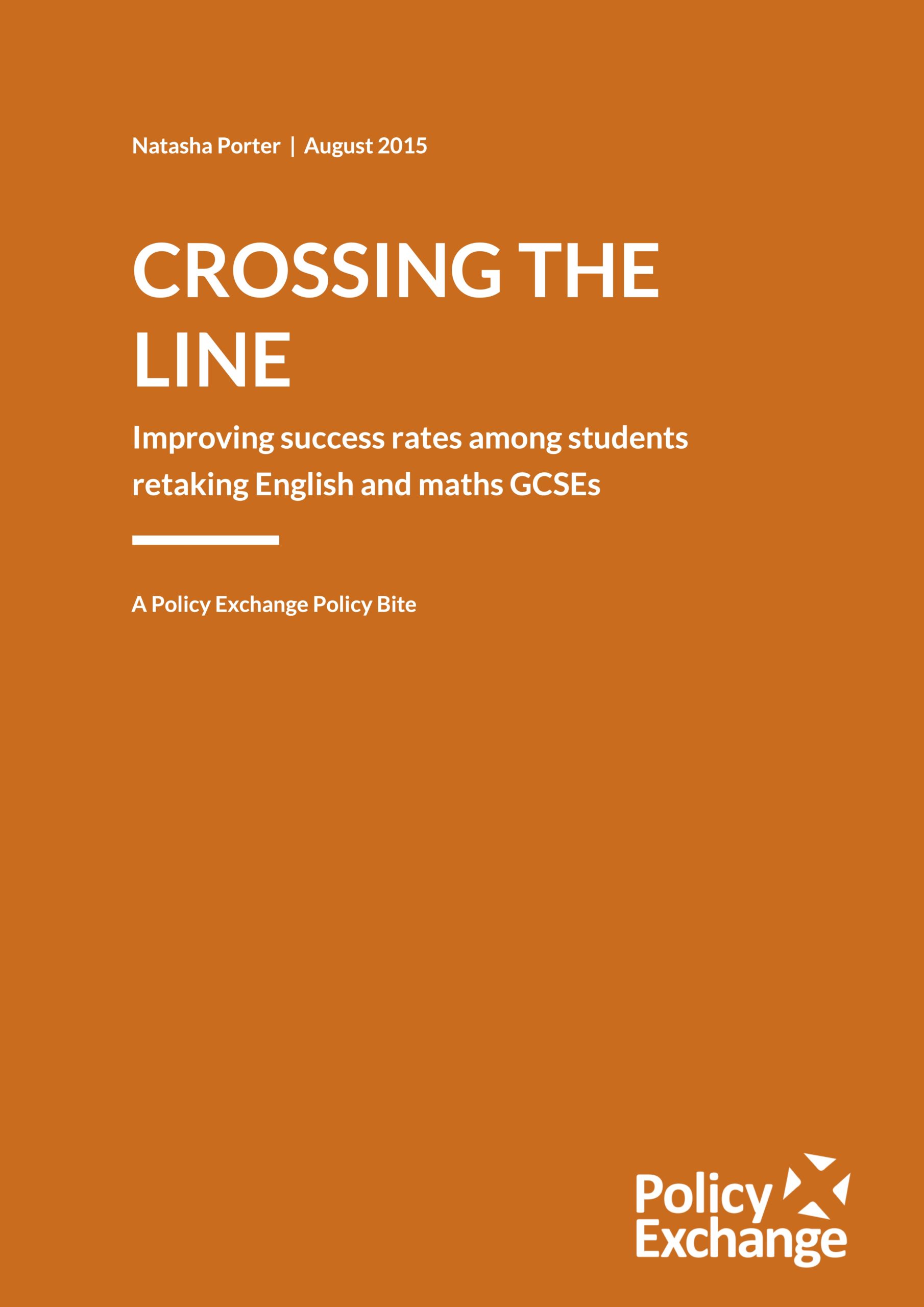
Crossing the Line: Improving success rates among students retaking English and maths GCSEs
Secondary schools should cover the costs of some or all their students who fail to get a C in GCSE English or maths and end up transferring from the school to a Further Education (FE) College to take their resits.
Crossing the Line reveals that FE Colleges are left to deal with a far greater proportion of students taking resits in GCSE maths and English compared to secondary schools and sixth form colleges. FE Colleges also take on more students who have received grades below a D and who require more intensive teaching.
The numbers bear out the challenge for FE Colleges. For students who completed their GCSEs in 2011 and retook them in 2013:
- FE Colleges took five times more students than schools (54% compared to 10%) who retook English. In raw numbers, 100,239 students re-took English at an FE College compared to 20,544 who stayed at school and 8,738 who went to a sixth form college
- FE Colleges took almost six times more students (60% compared to 13%) than schools who retook maths. In raw numbers, 110,811 students re-took maths at an FE College compared to 27,579 at school and 11,193 at a sixth form college.
- 49% of students retaking English GCSE at an FE College received below a D grade compared to 30% of those retaking the exams at school and 31% retaking at sixth form college
- 66% of students retaking maths GCSE at an FE College received below a D grade compared to 47% of those retaking the exams at school and 47% retaking at sixth form college
The report highlights that currently, the post 16 funding system does not recognise the additional burden that FE Colleges have to take on from the failure of schools to educate their students to a C grade or above. FE Colleges receive £4,000 for a 16-17 year old and £3,300 for an 18 year old to teach a full time qualification. This funding does not include remedial maths and English teaching for students resitting their GCSEs.
The paper says that the burden on FE Colleges has further increased since the government’s policy to force 16 year olds who fail GCSE English or maths kicked in in 2013, and many are struggling to cope. Potentially hundreds of thousands of students who received their GCSE results last week will be required to retake their GCSEs or a similar qualification, and most will probably choose to attend a Further Education college.
The paper says the ‘resit levy’ would only apply in the following instances:
- Where the student has both failed to get a C and achieved a negative score below a certain level on the new Progress 8 benchmark – to ensure schools are not penalised for making good progress with a pupil they took on at 11
- Where the pupil has been on the roll of the secondary school for a certain length of time – to ensure the school had sufficient time to teach the pupil
- Where the student has particular special educational needs and/or disabilities
- There would be a cap on the levy on any one particular school – to provide some surety in financial planning
The report also highlights how only 1 in 5 students who took their GCSEs in 2011 and resat in 2013, were entered for a GCSE, as opposed to a qualification at a lower level.

